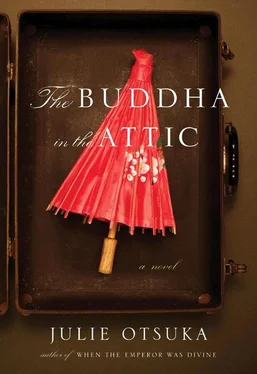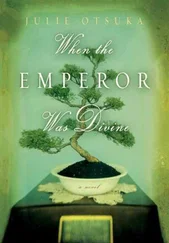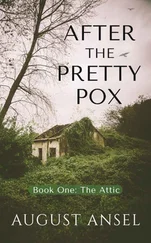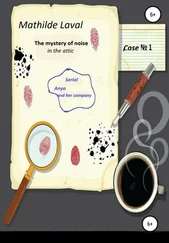We laid them down gently, in ditches and furrows and wicker baskets beneath the trees. We left them lying naked, atop blankets, on woven straw mats at the edges of the fields. We placed them in wooden apple boxes and nursed them every time we finished hoeing a row of beans. When they were older, and more rambunctious, we sometimes tied them to chairs. We strapped them onto our backs in the dead of winter in Redding and went out to prune the grapevines but some mornings it was so cold that their ears froze and bled. In early summer, in Stockton, we left them in nearby gullies while we dug up and sacked onions and began picking the first plums. We gave them sticks to play with in our absence and called out to them from time to time to let them know we were still there. Don’t bother the dogs. Don’t touch the bees. Don’t wander away or Papa will get mad . But when they tired and began to cry out for us we kept on working because if we didn’t we knew we would never pay off the debt on our lease. Mama can’t come . And after a while their voices grew fainter and their crying came to a stop. And at the end of the day when there was no more light in the sky we woke them up from wherever it was they lay sleeping and brushed the dirt from their hair. It’s time to go home .
SOME OF THEM were stubborn and willful and would not listen to a word we said. Others were more serene than the Buddha. He came into the world smiling . One loved her father more than anyone else. One hated bright colors. One would not go anywhere without his tin pail. One weaned herself at the age of thirteen months by pointing to a glass of milk on the counter and telling us, “I want.” Several were wise beyond their years. The fortune-teller told us he was born with the soul of an old man . They ate at the table like grown-ups. They never cried. They never complained. They never left their chopsticks standing upright in their rice. They played by themselves all day long without making a sound while we worked nearby in the fields. They drew pictures in the dirt for hours. And whenever we tried to pick them up and carry them home they shook their heads and said, “I’m too heavy” or “Mama, rest.” They worried about us when we were tired. They worried about us when we were sad. They knew, without our telling them, when our knees were bothering us or it was our time of the month. They slept with us, at night, like puppies, on wooden boards covered with hay, and for the first time since coming to America we did not mind having someone else beside us in the bed.
ALWAYS, we had favorites. Perhaps it was our firstborn, Ichiro, who made us feel so much less lonely than we had been before. My husband has not spoken to me in more than two years . Or our second son, Yoichi, who taught himself how to read English by the time he was four. He’s a genius . Or Sunoko, who always tugged at our sleeve with such fierce urgency and then forgot what it was she wanted to say. “It will come to you later,” we would tell her, even though it never did. Some of us preferred our daughters, who were gentle and good, and some of us, like our mothers before us, preferred our sons. They’re the better gain on the farm . We fed them more than we did their sisters. We sided with them in arguments. We dressed them in nicer clothes. We scraped up our last pennies to take them to the doctor whenever they came down with fever, while our daughters we cared for at home. I applied a mustard plaster to her chest and said a prayer to the god of wind and bad colds . Because we knew that our daughters would leave us the moment they married, but our sons would provide for us in our old age.
USUALLY, our husbands had nothing to do with them. They never changed a single diaper. They never washed a dirty dish. They never touched a broom. In the evening, no matter how tired we were when we came in from the fields, they sat down and read the paper while we cooked dinner for the children and stayed up washing and mending piles of clothes until late. They never let us go to sleep before them. They never let us rise after the sun. You’ll set a bad example for the children . They never gave us even five minutes of rest. They were silent, weathered men who tramped in and out of the house in their muddy overalls muttering to themselves about sucker growth, the price of green beans, how many crates of celery they thought we could pull this year from the fields. They rarely spoke to their children, or even seemed to remember their names. Tell number three boy not to slouch when he walks . And if things grew too noisy at the table, they clapped their hands and shouted out, “That’s enough!” Their children, in turn, preferred not to speak to their fathers at all. Whenever one of them had something to say it always went through us. Tell Papa I need a nickel. Tell Papa there’s something wrong with one of the horses. Tell Papa he missed a spot shaving. Ask Papa how come he’s so old .
AS SOON AS WE COULD we put them to work in the fields. They picked strawberries with us in San Martin. They picked peas with us in Los Osos. They crawled behind us through the vineyards of Hughson and Del Rey as we cut down the raisin grapes and laid them out to dry on wooden trays in the sun. They hauled water. They cleared brush. They shoveled weeds. They chopped wood. They hoed in the blazing summer heat of the Imperial Valley before their bones were fully formed. Some of them were slow-moving and dreamy and planted entire rows of cauliflower sprouts upside down by mistake. Others could sort tomatoes faster than the fastest of the hired help. Many complained. They had stomachaches. Headaches. Their eyes were itching like crazy from the dust. Some of them pulled on their boots every morning without having to be told. One of them had a favorite pair of clippers, which he sharpened every evening in the barn after supper and would not let anyone else touch. One could not stop thinking about bugs. They’re everywhere . One sat down one day in the middle of an onion patch and said she wished she’d never been born. And we wondered if we had done the right thing, bringing them into this world. Not once did we ever have the money to buy them a single toy .
AND YET they played for hours like calves in the fields. They made swords out of broken grape stakes and dueled to a draw beneath the trees. They made kites out of newspaper and balsa wood and tied knives to the strings and had dogfights on windy days in the sky. They made twist-up dolls out of wire and straw and did evil things to them with sharpened chopsticks in the woods. They played shadow catch shadow on moonlit nights in the orchards, just as we had back home in Japan. They played kick the can and mumblety-peg and jan ken po. They had contests to see who could nail together the most packing crates the night before we went to market and who could hang the longest from the walnut tree without letting go. They folded squares of paper into airplanes and birds and watched them fly away. They collected crows’ nests and snake skins, beetle shells, acorns, rusty iron stakes from down by the tracks. They learned the names of the planets. They read each other’s palms. Your life line is unusually short . They told each other’s fortunes. One day you will take a long journey on a train . They went out into the barn after supper with their kerosene lanterns and played mama and papa in the loft. Now slap your belly and make a sound like you’re dying . And on hot summer nights, when it was ninety-eight degrees, they spread their blankets out beneath the peach trees and dreamed of picnics down by the river, a new eraser, a book, a ball, a china doll with blinking violet eyes, leaving home, one day, for the great world beyond.
Читать дальше












